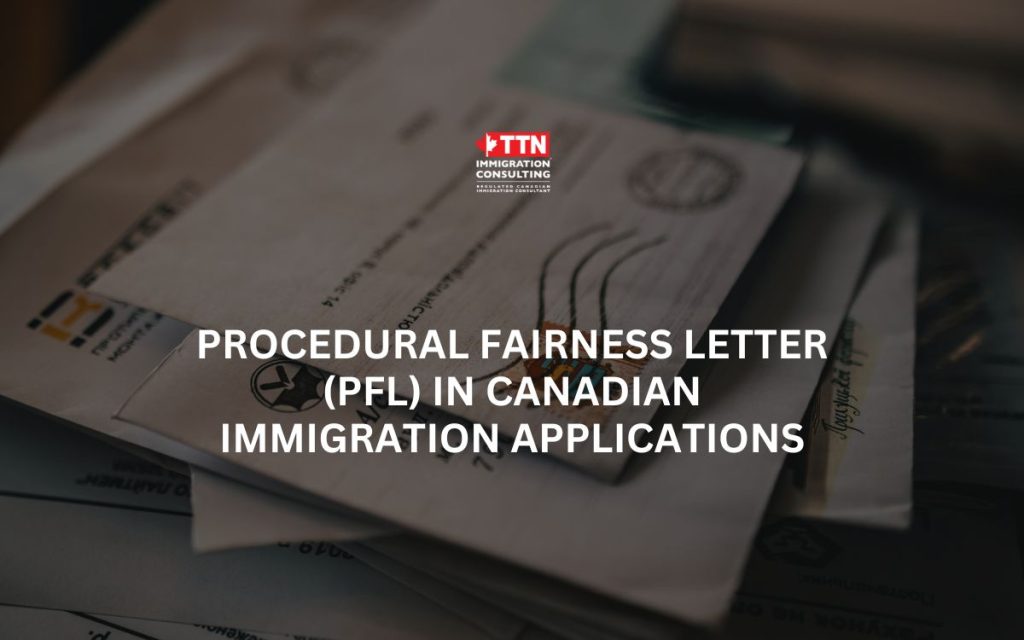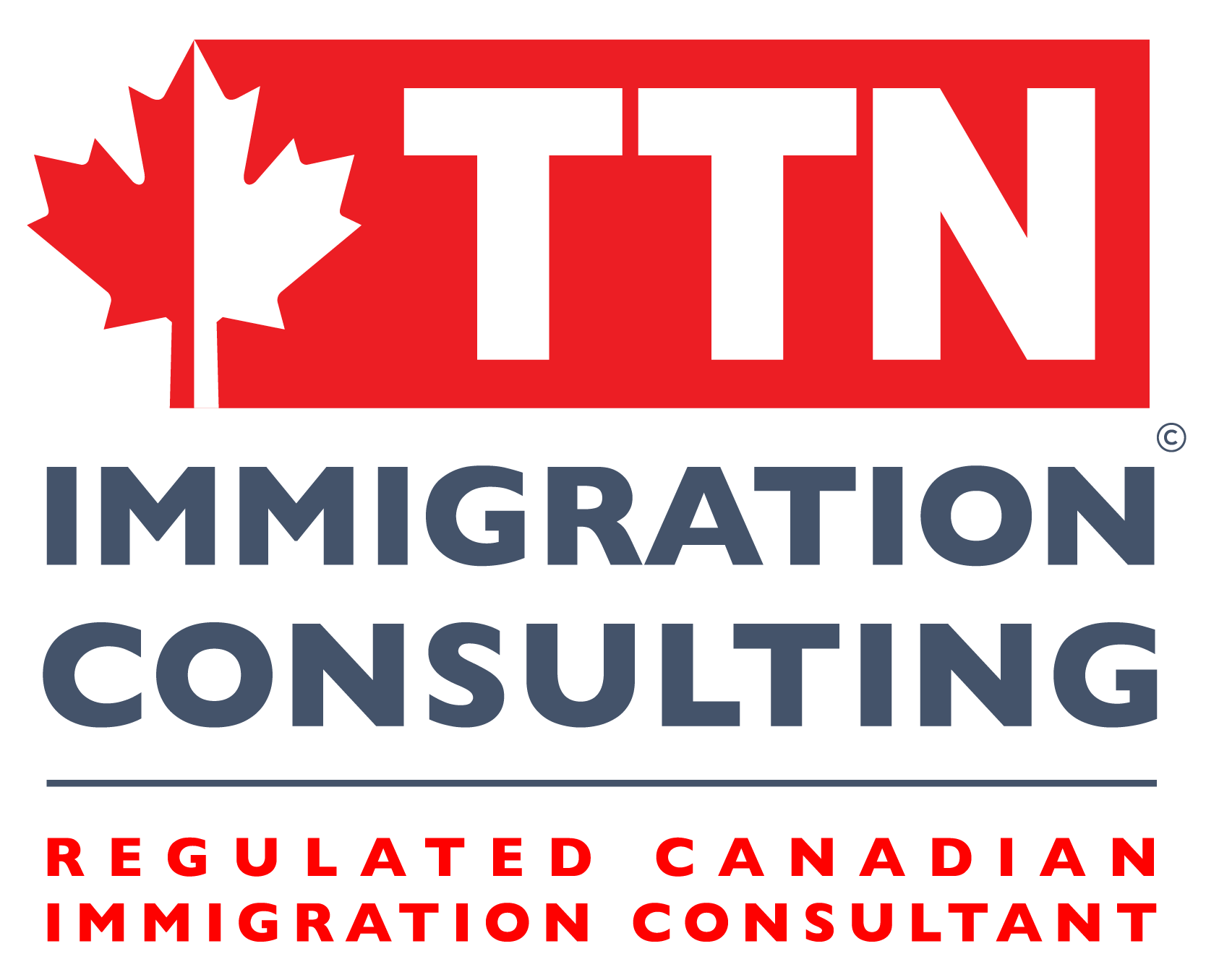Procedural Fairness Letter (PFL) In Canadian Immigration Applications
1. What is a procedural fairness letter?
Letter of Guarantee of Procedural Fairness (English is Procedural Fairness LetterA Notice of Support (PFL) is an official document sent to an applicant by Immigration, Refugees and Citizenship Canada (IRCC) during the processing of an application for permanent residence, visa or other permits.
This letter is sent when the officer reviewing the application finds one or more concerns in the application that could lead to refusal. The purpose of the letter is to inform the applicant of those concerns and allow them the opportunity to explain, supplement or rebut the information before IRCC makes a final decision.

2. Reasons for IRCC sending Procedural Fairness Letter
Below are common reasons why IRCC sends procedural fairness assurance letters:
- Doubts about the authenticity or completeness of the records
- Lack of evidence to prove eligibility for the settlement program
- Misrepresentation
- Concerns about health conditions or criminal record
- Suspicion that the sponsoring relationship (spouse, children) is not real
- Incorrect information in the past (for example, having been denied visas to other countries)
3. The importance of a procedural fairness letter
The PFL letter is an important step in the review process because:
- This is the applicant's last chance to respond before the application is rejected.
- If the response is complete, to the point and accompanied by valid evidence, the application may still be approved.
- If you do not respond, or respond incorrectly, your application is likely to be rejected.
- In case of misrepresentation, the applicant may be banned from applying for 5 years.
4. Contents of a typical PFL letter
A procedural fairness letter typically includes:
- Describe in detail what concerns the IRCC officer has
- Legal basis for concern (e.g. quoting IRPA)
- Request for explanation, evidence or additional documentation
- Specific time limit for response (usually 7 to 30 days)
- Warning that failure to respond by the deadline may result in rejection of the application based on the information currently available.
5. Instructions on how to respond to a procedural fairness guarantee letter
Here are the key steps to preparing your response:
1. Analyze the content of the letter carefully
Clearly identify each issue IRCC is asking. Make notes of specific information that needs to be explained.
2. Present honestly and clearly
If there are errors or omissions in the record, explain the reason (accidental or mistaken) and emphasize that you did not intentionally provide false information.
3. Provide supporting evidence
Prepare relevant documents to clarify the suspected issue. For example: employment confirmation letter, pay stubs, photos, correspondence, contracts, medical reports, legal papers, etc.
4. Meet deadlines
Submit a complete response by the deadline stated in the letter. If additional time is needed, a reasonable request for an extension should be submitted as soon as possible.
5. Consider getting professional help
For complex cases, it is advisable to consult an experienced immigration attorney or consultant to prepare a professional response.
6. Common situations that lead to PFL letters
Case 1: Spouse sponsorship application
IRCC may suspect a fraudulent marriage if the application lacks evidence of cohabitation, lacks photographs, or lacks financial ties. Applicants will need to provide additional evidence to prove the relationship is genuine.
Case 2: Misrepresentation
Under Section 40(1) of the Immigration, Refugees and Citizenship Act of Canada (IRPA), an applicant may be refused entry and barred from entry for five years if they knowingly or negligently provide false information. For example, failing to disclose a past refusal of a US visa.
Case 3: Not meeting medical conditions
If IRCC determines that your or your dependent's health condition may create a financial burden on the Canadian health system, they will send you a PFL letter asking for your response, additional treatment plan or other medical professional opinion.
Case 4: Express Entry or skilled worker profile
Applicants may receive a PFL letter if their application lacks confirmation of employment matching the NOC code, lacks details about job duties, or has accompanying family issues.
7. Some real-life examples
Success case:
A candidate was suspected of fraudulent work experience in his Express Entry profile. After receiving the PFL letter, he submitted a company confirmation letter, pay slips, and explained the confusion due to the date error. As a result, the profile was still approved.
In case of failure:
An applicant suspected of having a bogus marriage submitted only a general letter of confirmation without supporting documentation. The application was subsequently rejected due to insufficient evidence.
8. Frequently Asked Questions (FAQ)
Is a PFL letter a rejection letter?
No. This is a warning letter before rejection, to ensure fairness to the applicant.
Can I request an extension of time to respond?
Yes, but an extension application should be made as soon as possible, stating the reasons.
What if I don't respond to the PFL letter?
Your application will be rejected based on the information available.
Do I need to hire an attorney to respond to a PFL letter?
Not required, but in serious cases such as allegations of misrepresentation or suspected sham marriage, professional assistance is recommended.
Can I receive PFL letters multiple times?
Yes. If new issues arise during the review process, IRCC may issue a supplemental PFL letter.
9. Conclusion
The PFL letter is a critical warning in the Canadian immigration application review process. Applicants need to understand the content, respond honestly, completely and on time. If necessary, seek support from experienced immigration professionals to increase the chances of retaining the application. If you are having difficulty processing the PFL letter, contact our consulting team. TTN immigration for in-depth support from case analysis to drafting a response that is legal, focused, and timely.

